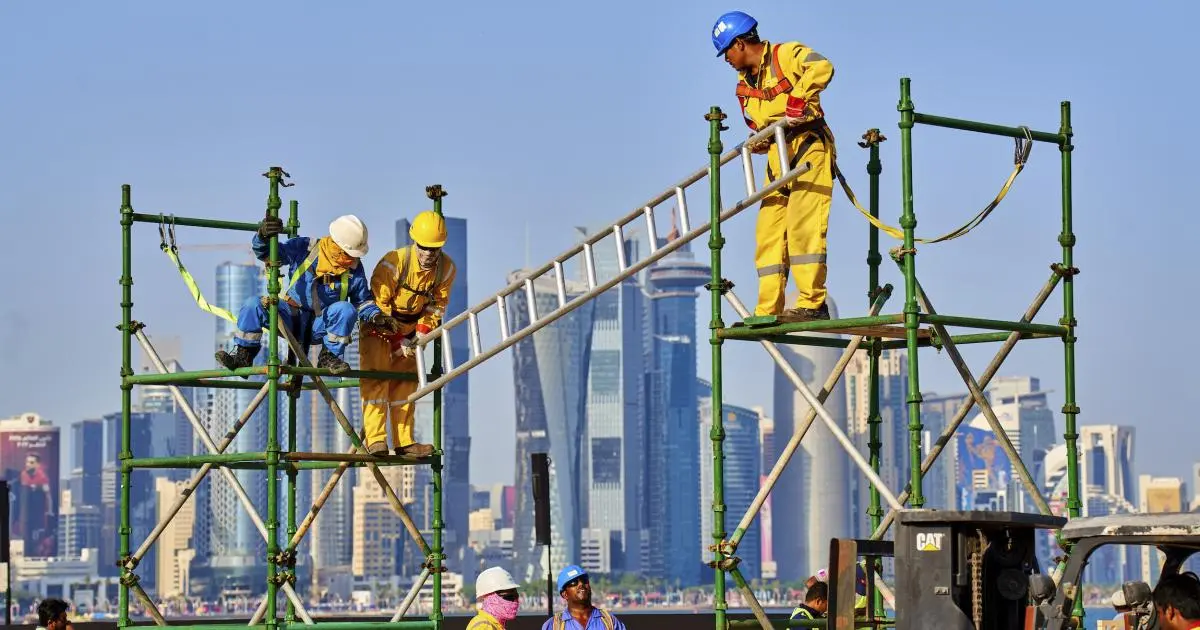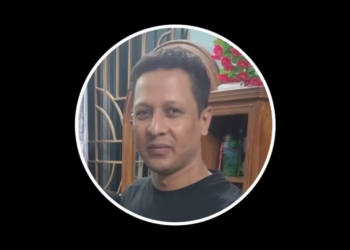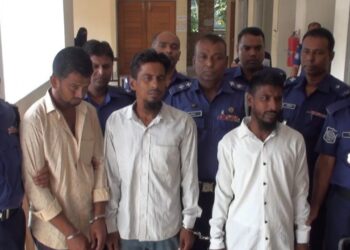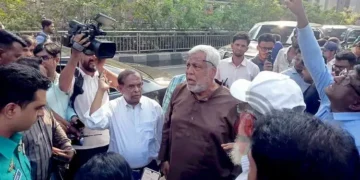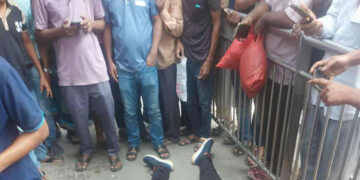Saudi Arabia’s SVP certification has made it harder for Bangladeshi workers to get cleaner and loader jobs. Thousands of visas are now stuck, creating uncertainty in the largest labor market for Bangladesh.
Saudi Arabia has started enforcing strict regulations that now require Skill Verification Program (SVP) certification even for low-skilled jobs like cleaners and loading-unloading workers, leaving thousands of Bangladeshi job seekers in limbo.
These sectors were once considered easy entry points for unskilled laborers, but now they demand formal certification. The Saudi Embassy in Dhaka has already stopped issuing visas for such roles without SVP documents, causing a major visa backlog and rising concern among recruitment agencies and workers.
Half of Migrant Workers Affected
According to the Bureau of Manpower, Employment, and Training (BMET), 50% to 60% of all Bangladeshi workers in Saudi Arabia are employed in cleaning and loading-unloading. The sudden enforcement of certification for these roles is a major shock to the labor pipeline.
Recruitment experts warn that the country’s largest foreign labor market may start shrinking unless Saudi authorities reconsider or ease some of these new requirements.
Visas Frozen, Hope on Hold
BMET reports that as of June 2025, outbound migration to Saudi Arabia dropped by about 5,000 workers from the previous month, reaching 64,504. Meanwhile, nearly 80,000 to 90,000 visa applications are stuck at the Saudi Embassy in Dhaka due to the certification issue.
In response, the Saudi Embassy temporarily relaxed the certification requirement for loading-unloading jobs until July 20. However, there is no clear decision yet on cleaner jobs, although a few more months of leniency are expected.
Recruiters Alarmed by Sudden Enforcement
Kafil Uddin Majumdar, owner of Freedom Overseas, told that
“Most unskilled workers go to Saudi Arabia to work as cleaners or loaders. We had requested that these roles be excluded from the SVP, but they were suddenly included. Now, many workers with medical reports and visa approvals are stuck.”
He explained that if this situation continues, it could wipe out much of the current job processing pipeline. He also revealed that Saudi’s MOFA system accepted passports submitted by June 19, but those submitted after remain in limbo.
Testing Challenges for Low-Skilled Workers
Dr. Salah Uddin, BMET’s Director of Training Operations, admitted the SVP policy is creating difficulties.
“We are facing serious challenges in implementing SVP for cleaner and loading trades. These workers are not used to computer-based written tests, which are now required,” he said.
He recommended that only practical tests should be used for low-skilled workers, not computer-based theory exams. “For physical roles like loaders, physical fitness should be enough,” he added.
Currently, workers must register online and pay a $50 SVP fee to sit for the test. After passing, they receive a five-year-valid certification.
Read More: Jamaat-e-Islami Ameer Warns: People Will Respond to Political Crimes
The practical exams are held at nine Technical Training Centers (TTCs) across Bangladesh. Once Saudi authorities approve, BMET plans to expand this to 20 more centers.
Low Wages Despite Certification
Despite stricter certification rules, salaries for Bangladeshi workers in Saudi Arabia haven’t increased. According to recruiters and labor activists, workers still earn between BDT 25,000–30,000 per month about $230–$275 USD the same as before SVP became mandatory.
Shameem Ahmed Chowdhury Noman, former Secretary General of BAIRA, criticized the policy:
“What is the benefit of certification if workers still earn the same? They’re paying for the test and training, but there’s no financial return.”
He urged the government to include a Standard Operating Procedure (SOP) in agreements with Saudi Arabia to ensure wage increases alongside new skill requirements.
What Is SVP and Why Is It Expanding?
Saudi Arabia launched the SVP in mid-2023, initially targeting five technical trades: plumber, electrician, welder, refrigeration/AC technician, and automobile electrician.
Within two years, the program has expanded to 71 trades and is expected to cover 73 trades soon, including cleaners and loaders. The program is part of Saudi Arabia’s broader push for a skilled workforce under Vision 2030.
So far, 27,000 Bangladeshi workers have undergone SVP assessment, and about 73% passed, BMET reports. The target is to certify 30,000 loaders and 5,000 cleaners each month, with a monthly goal of certifying 40,000 workers across all sectors.
Remittances at Risk
Saudi Arabia hosts over 3 million Bangladeshi workers, making it Bangladesh’s single largest source of remittances. Any disruption in labor migration to the kingdom could significantly impact the country’s foreign currency reserves, especially when other major markets like the UAE, Oman, Bahrain, and Malaysia remain effectively closed to new Bangladeshi workers.
Government Response and Future Steps
The Ministry of Expatriates’ Welfare is actively engaging with Saudi authorities to push for flexibility, especially for low-skilled workers. BMET is also working to streamline certification processes and improve pass rates by focusing on practical training.
Officials hinted that during future G2G (government-to-government) negotiations, they plan to demand better wages for certified workers.
A Crisis of Skills and Survival
The enforcement of Saudi Arabia’s SVP certification policy marks a major shift in the country’s labor market. While the goal is to improve workforce skills, the immediate impact on Bangladeshi migrants specially the poor and unskilled is undeniable.
For thousands of workers dreaming of a better life in Saudi Arabia, the hurdles are now higher, and the rewards remain uncertain. Without urgent intervention, this new skill barrier may close doors that were once wide open.
Share via:

